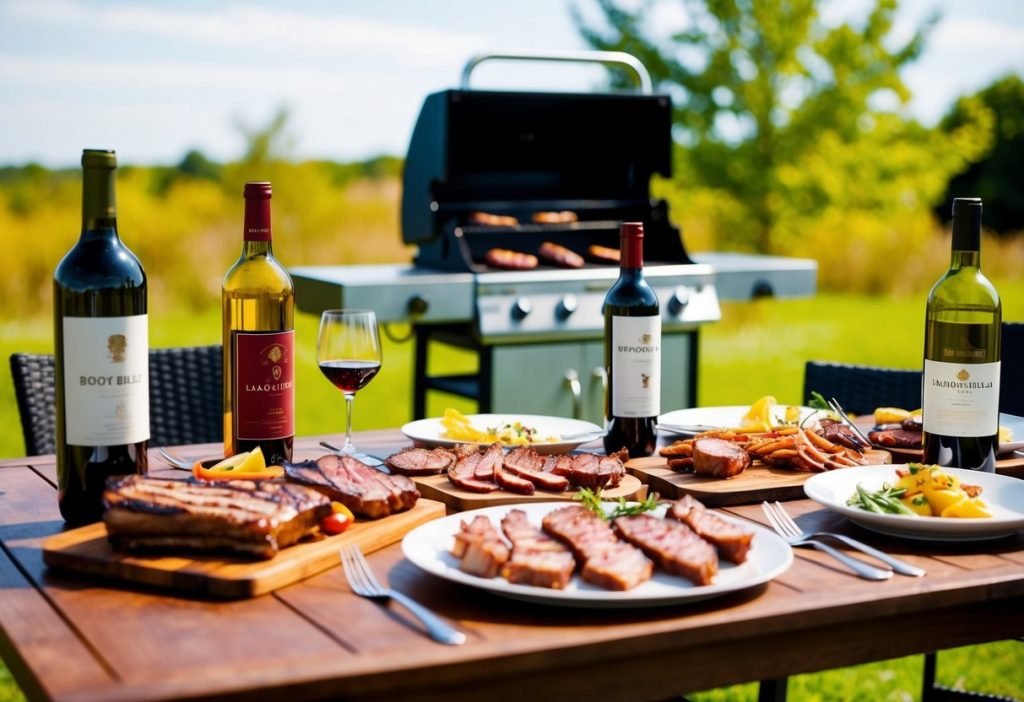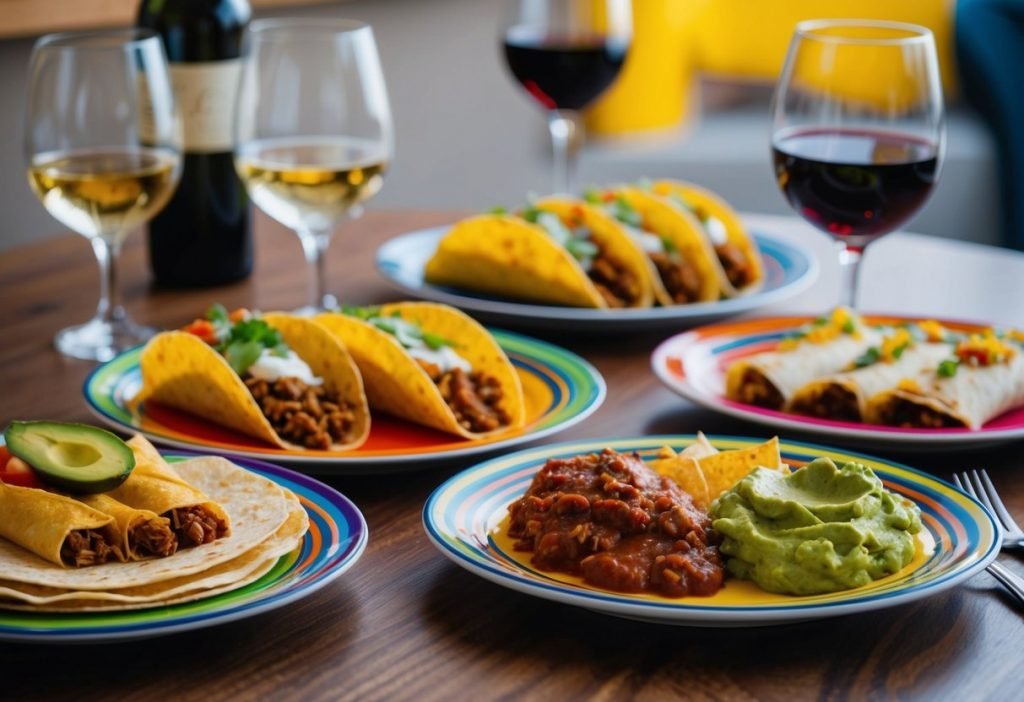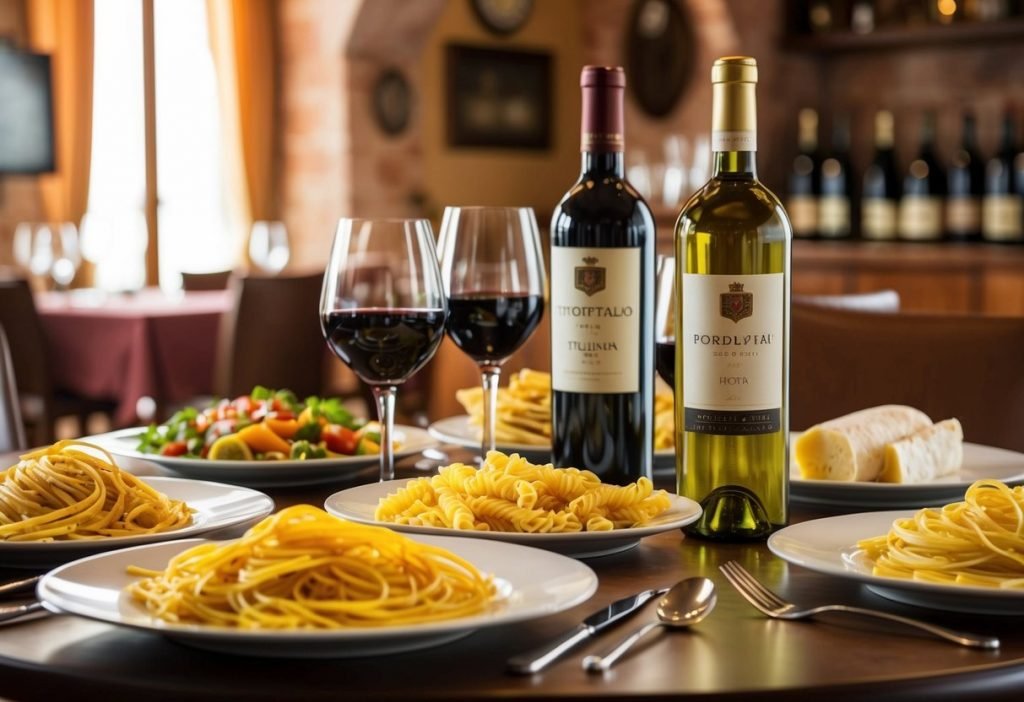Pairing wine with BBQ can enhance the dining experience significantly. The key is to choose wines that complement the rich, smoky flavors of grilled meats and tangy sauces. Red wines such as Zinfandel or Syrah work well with hearty barbecue, while lighter options like Sauvignon Blanc can complement grilled vegetables or chicken.

Understanding the flavors of the BBQ sauce is essential. Sweet sauces often pair nicely with fruity wines, while tangy and spicy sauces benefit from acidity in wines like Chardonnay. This balance can elevate both the food and the wine, creating a harmonious meal.
Exploring different wine profiles can add excitement to a BBQ gathering. Trying various combinations allows for discovering new favorites that enhance the overall taste of each dish. Whether it’s a casual cookout or a formal gathering, the right wine selection makes a lasting impression.
Understanding the Basics of BBQ and Wine Pairing
BBQ styles vary widely and can dramatically impact wine choices. Each type of barbecue has distinct flavors that require careful consideration when selecting an appropriate wine.
Types of BBQ Styles
-
Memphis BBQ: Known for its pork ribs and pulled pork, Memphis BBQ often features a sweet, tomato-based sauce. Wines like Zinfandel and Shiraz can complement these flavors well.
-
Texas BBQ: This style emphasizes smoked brisket and sausages, often with a spicy rub. A bold Cabernet Sauvignon or Malbec enhances the deep, smoky flavors.
-
Kansas City BBQ: Characterized by a thick, sweet sauce, it pairs well with fruity wines such as Grenache or an off-dry Riesling.
-
Carolina BBQ: Featuring vinegar-based sauces, this style suits lighter wines like Pinot Grigio or a crisp Chardonnay, which balance acidity with the tangy flavors.
Characteristics of Different Wines
-
White Wines: These tend to be lighter and crisp. Wines like Sauvignon Blanc offer refreshing acidity that cuts through fatty dishes.
-
Red Wines: Generally more robust, red wines can hold up against smoky meats. Merlot provides softer tannins for a versatile option.
-
Rosé: Known for its balance, rosé pairs well with a variety of BBQ dishes. Its fruitiness works nicely with both spicy and sweet sauces.
-
Sparkling Wines: These wines add a celebratory element. The bubbles aid in cleansing the palate, making them suitable for rich, savory dishes.
Choosing the right wine for BBQ involves understanding both the flavors of the meat and the characteristics of the wine. This combination can elevate the overall dining experience.
Choosing the Right Wine
Selecting the perfect wine to complement BBQ can enhance the dining experience. The choice depends on the type of meat, preparation methods, and flavor profiles.
Pairing with Red Meats
For red meats like beef and lamb, bold red wines are ideal. Full-bodied options like Cabernet Sauvignon or Malbec can stand up to the richness of grilled steaks and ribs.
- Cabernet Sauvignon works well with smoky flavors, enhancing the meat’s char.
- Malbec adds a fruit-forward touch, balancing savory notes in dishes like barbecued short ribs.
When grilling lamb, consider a Syrah or Zinfandel. They offer spicy and fruity elements that pair effortlessly with mint sauces or smoky marinades.
Pairing with White Meats
White meats such as chicken and pork require a different approach. Lighter wines tend to complement these meats better.
- Chardonnay is versatile and can go well with roasted chicken, especially if it’s seasoned with herbs.
- Sauvignon Blanc offers a crisp, refreshing profile that pairs nicely with grilled chicken and lemon.
When BBQing pork, especially ribs, consider a Pinot Grigio or Riesling. These wines provide acidity to cut through the fat, enhancing the flavors without overpowering them.
Considering Spiciness and Sauces
Spices and sauces can significantly affect wine selection. Spicy marinades or BBQ sauces require careful consideration.
- For spicy barbecue dishes, look for wines with a hint of sweetness. Off-dry Riesling or Grenache can balance heat effectively.
- For vinegar-based sauces, consider a Beaujolais or Rosé, as their acidity complements tangy flavors.
When using sweeter sauces, such as teriyaki, a Merlot or even a Prosecco can enhance the dish’s overall harmony, ensuring a refreshing partnership.
Tips for Successful Pairing

Pairing wine with BBQ requires attention to flavor harmony and proper serving techniques. Understanding the interaction between wine characteristics and BBQ flavors enhances the dining experience.
Balance of Flavors
When selecting wine for BBQ, consider the dominant flavors in the dish. Bold meats like brisket or ribs often pair well with full-bodied red wines such as Cabernet Sauvignon or Zinfandel.
For smoky or spicy sauces, opt for wines that can stand up to these aggressive flavors. A Syrah or Malbec can offer richness to complement the savory elements.
White wines can shine with lighter fare, such as grilled chicken or seafood. Chardonnay with a hint of oak can enhance flavors without overwhelming them.
Balancing sweetness in BBQ sauces can also be considered. A slightly off-dry Riesling can contrast nicely with sweet and tangy sauces.
Temperature and Serving Suggestions
Serving temperature influences the flavor perception of wine. Red wines should be served slightly below room temperature, around 60-65°F, to help accentuate their fruit characteristics.
White wines and sparkling varieties thrive when chilled, ideally between 45-55°F.
Decanting red wines can enhance their taste, particularly robust varieties. Doing so about 30 minutes prior to serving helps open up flavors.
When serving BBQ, consider using wine glasses suited for the type of wine. This enhances aroma and flavor, making the entire experience more enjoyable.
Offering a variety of wines can cater to different preferences, allowing guests to choose what pairs best with their meal.
Wine Pairing Suggestions
Choosing the right wine to accompany BBQ can enhance the flavors of both the food and the drink. Different cooking methods and ingredients require distinct wine selections. Here are some suggestions.
Wine for Smoked Meats
Smoked meats have rich, complex flavors that pair well with bold red wines. A full-bodied Cabernet Sauvignon complements the smoky profile of brisket or ribs. Its tannins help balance the fat in these cuts.
Another great option is Zinfandel. Known for its fruit-forward characteristics, it works well with the sweet and spicy notes found in many BBQ sauces. The acidity also cuts through the richness of the meat.
If looking for white wine, consider a Chardonnay. Choose an oaked version to match the depth of flavor from smoked meats. This wine’s buttery notes align nicely with the smoke.
Wine for Grilled Favorites
Grilled foods often benefit from lighter wines that can enhance their seasoning without overpowering the dish. Sauvignon Blanc is ideal for grilled chicken or fish. Its citrus notes will highlight the seasoning and char.
For red meat, Merlot offers a softer alternative to heavier reds. It complements grilled steaks or burgers, especially those seasoned with herbs. The wine’s fruitiness can balance the smoky grill flavor.
For those who prefer rosé, a dry Provence Rosé pairs well with various grilled vegetables and meats. It’s refreshing and enhances the overall experience without overshadowing the dish.
Wine for Spicy BBQ Dishes
Spicy BBQ requires wine that can manage heat while complementing flavor. Riesling, especially off-dry versions, is a fantastic choice. Its sweetness alleviates the heat and brings out the dish’s flavors.
Grenache is another excellent option for spicy meats. It has enough fruitiness to contrast the heat while maintaining a good acidity. This makes it versatile for a range of spicy BBQ dishes.
Finally, Shiraz can also work well with spicy BBQ. Its boldness can match the intensity of the heat while providing rich, dark fruit flavors that enhance the dish’s overall enjoyment.



